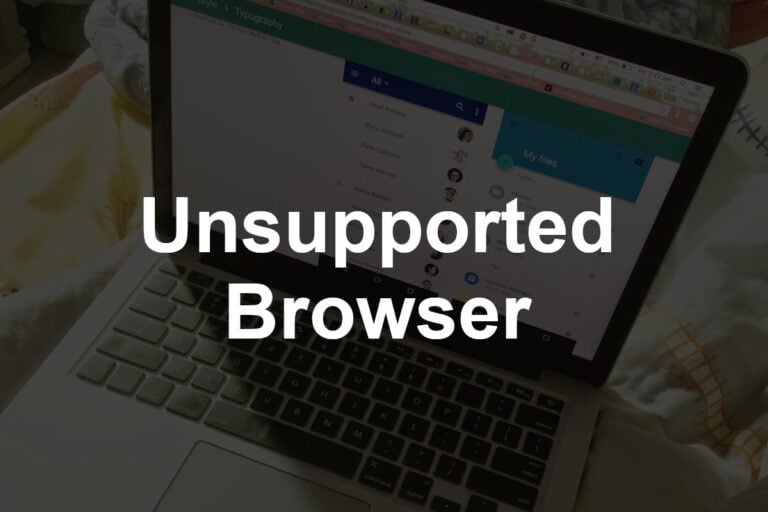Mozilla Firefox has long been a favorite for users who value privacy, open-source development, and customization. But if you’re looking for something different—whether for speed, stronger privacy, or better integration with your devices—there are plenty of alternatives available.
This guide breaks down the best Firefox alternatives in 2025, their strengths, and who they’re best suited for.
🔑 Why Look for Alternatives to Firefox?
- Performance: Some browsers are faster or lighter.
- Compatibility: Certain websites and apps may run better on Chromium-based browsers.
- Features: Built-in VPNs, ad blockers, or AI tools may be appealing.
- Ecosystem: Integration with Google, Apple, or Microsoft services.
🌐 Top Firefox Alternatives in 2025
1. Google Chrome
- Best for: Speed and compatibility
- Why choose it:
- Fastest updates and widest web compatibility.
- Huge extension library.
- Syncs seamlessly with Google services.
- Downside: Heavy on RAM and not the most privacy-friendly.
2. Microsoft Edge
- Best for: Windows integration & productivity
- Why choose it:
- Built on Chromium, so it supports Chrome extensions.
- Features like vertical tabs, collections, and built-in PDF tools.
- Deep integration with Windows 11 and Microsoft 365.
- Downside: Microsoft pushes it aggressively, which some users dislike.
3. Brave
- Best for: Privacy-first browsing
- Why choose it:
- Blocks ads and trackers by default.
- Built-in crypto wallet and Brave Rewards system.
- Faster page loads due to blocking third-party scripts.
- Downside: Rewards system (cryptocurrency-based) isn’t for everyone.
4. Safari (Mac/iOS only)
- Best for: Apple ecosystem users
- Why choose it:
- Optimized for battery life and performance on Macs and iPhones.
- Strong privacy features like Intelligent Tracking Prevention.
- Syncs across Apple devices with iCloud.
- Downside: Limited customization and not available on Windows/Android.
5. Opera
- Best for: Built-in tools & customization
- Why choose it:
- Comes with a free built-in VPN and ad blocker.
- Sidebar integrations (WhatsApp, Messenger, TikTok).
- Opera GX for gamers offers CPU/RAM controls and RGB themes.
- Downside: Owned by a Chinese consortium, which raises privacy concerns for some.
6. Vivaldi
- Best for: Power users and customization
- Why choose it:
- Extremely customizable interface (tab stacking, split-screen, themes).
- Built-in mail client, calendar, and feed reader.
- Chromium-based, so it supports Chrome extensions.
- Downside: May feel overwhelming for casual users.
7. Tor Browser
- Best for: Maximum anonymity
- Why choose it:
- Routes traffic through the Tor network for strong privacy.
- Based on Firefox but hardened for security.
- Great for circumventing censorship.
- Downside: Slower than other browsers due to onion routing.
⚡ Quick Comparison
| Browser | Best For | Privacy Level | Platforms | Extensions |
|---|---|---|---|---|
| Chrome | Speed & compatibility | Low | All | Huge (Chrome Web Store) |
| Edge | Windows integration | Medium | All | Chrome-compatible |
| Brave | Privacy & ad-blocking | High | All | Chrome-compatible |
| Safari | Apple ecosystem | High | macOS/iOS | Limited |
| Opera | Built-in tools | Medium | All | Chrome-compatible |
| Vivaldi | Customization | Medium-High | All | Chrome-compatible |
| Tor | Anonymity | Very High | All | Limited |
🧭 Final Thoughts
- If you want speed and compatibility → Go with Chrome or Edge.
- If privacy is your top concern → Choose Brave or Tor.
- If you’re in the Apple ecosystem → Safari is the natural choice.
- If you want built-in features and customization → Try Opera or Vivaldi.
Firefox remains an excellent browser, but depending on your priorities, these alternatives may serve you even better.
Overview of Web Browser Alternatives
When searching for a web browser, one often goes beyond the well-known Mozilla Firefox, considering aspects like privacy, security, and performance. Notably, options are plenty, and they cater to diverse user needs, from those who prioritize speed to the privacy-conscious folk.
Vivaldi emerges as a standout alternative, boasting a free price tag. It’s not just about cost-saving; Vivaldi’s allure includes its compatibility with all Chrome extensions, thanks to its Chromium backbone. This opens up a wide range of functionality that users can personalize to their liking.
Brave steps up in the privacy game, with an integrated ad-blocker and IPFS integration. Its design focuses on preventing trackers and speeding up the web experience. It is well-rated for those who value a web space without intrusive ads and trackers.
Waterfox, on the other hand, appeals to users who prefer open-source platforms. It’s tailored for privacy and allows those who like to dig into the code.
Additionally, some users gravitate towards Google Chrome for its high performance and reliability, although it’s not as privacy-focused as some of the alternatives.
Below is a quick overview of the notable alternatives and their key features:
| Web Browser | Open Source | Privacy & Security | Performance |
|---|---|---|---|
| Vivaldi | No | High | High |
| Brave | Yes | Very High | High |
| Waterfox | Yes | High | Moderate |
| Google Chrome | No | Moderate | Very High |
The search for the right browser hinges on one’s specific needs. Whether it’s an ad-free experience, a customizable interface, or the ability to tweak and explore the software, there’s likely a browser out there that ticks all the boxes.
Specific Firefox Alternatives and Features
Searching for a browser that fits your needs can feel overwhelming, but you’ve got options. Here’s a rundown of different browsers, neatly categorized to help you make an informed choice.
Chromium-Based Browsers
Chromium serves as the backbone for a number of browsers due to its robustness and reliability. Google Chrome is well-known for its speed, even with multiple extensions. Vivaldi offers unique functionalities, such as tab stacking and quick commands while Brave enhances user privacy with a built-in ad blocker and tracker blocker. On the other hand, Microsoft Edge, which also uses Chromium, offers features like Collections and sleeping tabs to improve speed and efficiency.
Non-Chromium Alternatives
Browsers like Pale Moon and Waterfox offer an experience outside of the Chromium ecosystem. They’re independent and aim for extensive configurability and user freedom, running on the Goanna-based web engine.
Privacy-Centric Browsers
Brave and LibreWolf are built with privacy at their core. They limit tracking and provide tools like fingerprinting protection without compromising on speed. LibreWolf adheres to user privacy and freedom, emphasizing settings that support anonymity.
Performance and Efficiency
Speed and low resource usage are particularly important for users with limited hardware capabilities or those seeking a fast browsing experience. Google Chrome and Microsoft Edge claim superior performance, while Brave asserts it’s faster and lighter than most due to its ad and tracker blocking nature.
Cross-Platform Availability
The major browsers like Chrome, Edge, and Safari offer cross-platform support for Windows, macOS, Android, and iOS, facilitating a seamless experience across devices with cloud sync features.
Customization and User Interface
Vivaldi and Waterfox stand out with their emphasis on customizability. From interface adjustments to extensive settings, they cater to users who prefer a personalized touch. Vivaldi even comes with a built-in note-taking feature, dark mode, and email client.
Compatibility and Legacy Support
While browsers like Chrome and Edge prioritize the latest technologies, Pale Moon supports older extensions and themes catering to users still operating on legacy systems.
Unique Features
Opera sets itself apart with Opera Flow, a feature that seamlessly connects all your Opera browsers on different devices. Vivaldi incorporates unique elements such as tab stacking and built-in email client.
Support and Community
Community support can sway one’s choice of a browser. Open-source browsers like LibreWolf and Waterfox boast dedicated communities that contribute to development and provide user support.
Security and Privacy Tools
Brave integrates tools such as a built-in VPN and ad blocker, while LibreWolf focuses on shutting down tracking and fingerprinting tactics. Many browsers offer advanced privacy settings to enhance security.
Enhanced User Experience
Features like ad blockers, dark mode, and customizable themes found in browsers like Opera and Vivaldi aim to boost enjoyment and comfort during browsing sessions.
Advanced Technologies
Browsers, incorporating advanced tech, improve performance and compatibility. Safari, built on the Webkit engine, offers smooth integration within Apple’s ecosystem, and Firefox Developer Edition introduces features specifically for web development.
Operating System Integration
Modern web browsers offer varying degrees of integration with operating systems. Edge and Safari are deeply integrated into Windows and macOS, respectively, for an optimized user experience.
Frequently Asked Questions
Navigating the sea of web browsers can be overwhelming, especially when looking for alternatives to Firefox. This section aims to shed light on diverse browser options, covering everything from open-source choices to unique Firefox offshoots.
What are the most popular alternatives to Firefox for users seeking open-source options?
For those favoring open-source software, browsers like Chromium and Vivaldi stand out. They offer customization and privacy while maintaining transparency in their development.
Which non-Chromium browsers are available for users seeking diversity in their browsing options?
Beyond the Chromium universe, there’s Safari for Apple users and Opera, which provides a competitive feature set, including a free VPN and ad blocker.
Can you list Firefox forks that offer unique features not found in the main Firefox browser?
Pale Moon and Waterfox are notable forks of Firefox. They diverge by focusing on legacy extensions and enhanced customization options that aren’t present in the main release.
What are the top choices for Firefox-based browsers for users who like the Firefox framework but want a different experience?
Third-party browsers like IceCat and SeaMonkey build on Firefox’s core but diverge in their design philosophy, focusing on niche user needs and offering different suites of tools.
Are there any Chromium-based browsers for Linux that provide similar functionality to Firefox?
Linux users can explore Chromium-based browsers like Brave and Vivaldi, which offer a browsing experience comparable to Firefox with added privacy and customization features.
What alternatives to Firefox are being discussed on platforms like Reddit by the online community?
On forums like Reddit, browsers such as Brave, which touts enhanced privacy, and Vivaldi, known for its rich customization, are often recommended as worthy Firefox alternatives.






